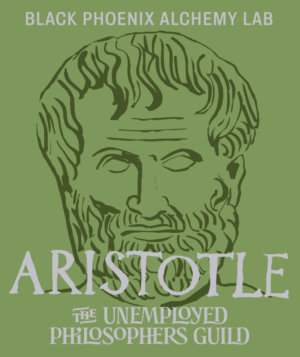Juniper - White
-
Aristotle Beard Oil
Add to cartARISTOTLE of Stagira (384 BCE – 322 BCE)
His Poetica saved the cat 23 centuries before the first screenwriting how-to book.
The history of Western logic begins with his Organon.
Aristotle studied under Plato, who studied under Socrates, and this ancient Greek beardy trinity became known as the “fathers of Western philosophy.”
The founder of the Peripatetic school (named for his custom of walking as he lectured), Aristotle systematically examined human endeavor and the natural world. Though some of his ideas were just plain inaccurate, he not only invented an early version of the scientific method, he was first to categorize similar living things by group, and sorted his treatises by topic (ethics, semantics, economics, politics, religion, zoology, biology, physics) substantially as we study and practice the arts and sciences today.
Aristotle’s writing blew away contemporaries; yet of 200 works, all that remain are a few dozen crummy sets of lecture notes and compilations by students and students of students.
We may have lost his legendary eloquence, but even the literary shadows of his original compositions illuminate our thinking a couple of thousand years later.
If you are the type who likes to stroke your beard and think or to pace and stroke your beard and think, or to pace and stroke your chin and think – for do we have incontrovertible proof he had a beard? – Aristotle will give you something to think… about your beard.
Gentlemen, see Historia Animalium, Book III, Ch. 11:
In some cases among men the upper lip and the chin is thickly covered with hair, and in other cases these parts are smooth and the cheeks are hairy; and, by the way, smooth-chinned men are less inclined than bearded men to baldness.
Ladies, see Historia Animalium, Book III, Ch. 11, a few paragraphs earlier:
Women do not grow hairs on the chin; except that a scanty beard grows on some women after the monthly courses have stopped; and similar phenomenon is observed at times in priestesses in Caria, but these cases are looked upon as portentous with regard to coming events.
Thinking about starting an argument? If you’re not starting with Aristotle, maybe you’re not doing it right.
Oman frankincense, Greek sage, and white juniper.
